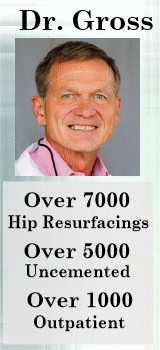Hey Scott, I had definite transitions in how I felt as the OA progressed.
I do remember the first time I noticed pain from it. I was walking with a friend to lunch, I had this small groin pain that lasted all day long. Being very active and having just played soccer, I thought I had a small groin pull. It was completely gone the next day, which was unusual.
The next thing was extreme soreness in my back and groin after playing in league games for basketball and soccer. After each game (one to one and a half hours), I would get home and be so sore, I could barely walk around. I attributed it to getting old or maybe overdoing it.
There was one stretch where I was laying down a floor for a redo of my basement, playing soccer and doing Tae Kwon Do, that each night I just collapsed. It seemed natural, based on what I was doing, but in doing those kind of things the year before, I was never as sore as now.
Then I had to give up martial arts because my ROM declined rapidly and real pain hit when I tried to do some of the more limber kicks. Kicking the heavy bag became a crap shoot, I could hit it and be fine, or hit it and get that nice sciatic shot across the bow.
Then basketball became a casualty when I would jump, come down and get pain. That was the first actual hip pain, not groin, back, etc.
My ROM became so bad that all of my friends in soccer noticed I was running at half speed, moving at the same speed, but at half the stride. Moves that I had no problem with (step over was a favorite) became impossible because I couldn't go over the ball. Then my left hip started dislocating, popping out while I played. I would pop it back in and go on. This was in my death spiral phase, at the end of things.
What sealed the decision for me was the dislocations. The first one happened while moving my daughter into her dorm. I had run a van full of boxes up to her fourth floor room, when I was raising her bed in her room and all of a sudden, my hip moved. Wasn't sure what the deal was, and my daughter and a friend looked at me strangely. I took a couple of steps, but could not walk right. I twisted my leg, locking it and it snapped into place with a bit of pain.
It happened again while sleeping a few days later. I woke up and tried to walk it out, but it took a good twenty minutes before it 'attached' properly. By now I was upset, in pain and scared.
This, along with increasing lower back pain, extremely tight muscles everywhere, knee pain where I hadn't had any issues before, no sleep and a walk that was painful for others to watch were brutal. The muscle issues were so bad that my doctor went through a whole series of tests to eliminate afflictions that attack muscles or nerves. I tested for Lyme disease, nerve function tests (painful), etc.
So yeah, many issues expressed themselves and receded after the surgeries. I don't have any lower back, knee, tight muscles. No nerve problems, lack of sleep, ankle pain. Some other things also withdrew that we don't consider, since they're not physical - depression, pessimism, an ague and lack of hope. The OA drains you in many ways, taking care of it with HR (preferentially, to me) or THR is the best step possible.
It was an increased degradation in both my physical life and emotional life, and needed to be removed.










